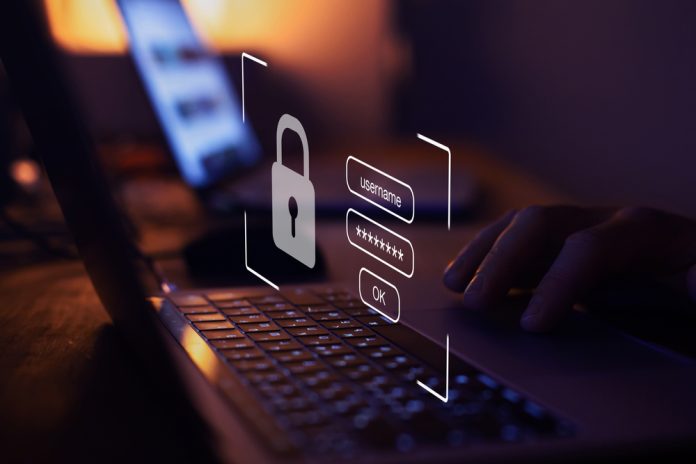
As we’ll learn, teaching your employees about cybersecurity in this ever-evolving world is essential. However, throwing out directives and telling them what to watch for may not be the most effective method.
It’s imperative to get your new employees in the loop so they can start looking for threats as soon as they hit the work floor. We have some tips for preventing burnout during cybersecurity training as you onboard employees.
Why your agents must learn cybersecurity
In 2023, the chances of seeing at least one cybersecurity issue at your organization are almost guaranteed. While hackers may try to gain access to your system or send that tricky phishing email, if the management or employees at your company can catch it on time, the issue becomes less severe. However, many organizations aren’t taking cybersecurity as seriously as they should. According to Duke University, 80% of companies have reported being hacked at one point or another.
The problem is that hackers are getting smarter and finding new ways of tricking employees into helping them succeed. To prevent these types of breaches, new and existing employees should learn about the following:
● How to create strong passwords.
● Proper ways to secure devices.
● How to assess the severity of a threat.
● Where to report potential attacks.
● Best practices for properly storing files and documents.
One way to keep your employees from falling asleep or becoming burned out during cybersecurity training is to talk about how serious a successful threat can be for a company, especially in a small business. According to IBM, in 2022, the average cost to deal with the aftermath of a breach was over $4 million, and many organizations don’t have the funds to pay what’s necessary to recover their reputation and pay for damages.
So, if employees aren’t vigilant and report threats when they see them, then the company could go under, and they could lose their jobs. That fact alone may encourage them to stay engaged during the training.
While avoiding burnout
Suppose you don’t practice any of these tips, and you sit everyone in a room and show a PowerPoint presentation of dull bullet points without any extra engagement. In that case, your employees will inevitably grow bored. If the information goes in one ear and out the other, you’re not helping anyone, and your company could pay the price.
However, it’s more than that. If your employees get to the point where they’re burned out, those negative feelings can impact other aspects of their jobs. When many people get exhausted, it’s far too easy to lose the motivation they once had to do their best work. Plus, if employees become overly bored, they could even call out of work and miss essential training sessions, and the problem worsens.
On top of that, burnout has become such an issue as of late that it is now a diagnosable sickness. Some employees may have it if they experience feelings of exhaustion, they start to feel negative about their job, and they begin to produce less quality work. You don’t want your employees feeling this way, especially when you know the fate of your company is at stake.
Avoid repetitive information
When avoiding burnout during cybersecurity training, it’s as much about what not to do as what to try. For instance, it’s essential to ensure that the content you are teaching is current and that it talks about today’s risks. If you teach old information and discover that you need to bring the employees in again for future training, the unending and repetitive meetings could lead to burnout and fatigue.
Also, try to avoid forcing the team into all-day training sessions, as eight hours straight of learning anything can become boring over time, especially if the way you train is bland and uninteresting. Disinterest during cybersecurity training can also be an indicator of security fatigue, which can result when employees are overwhelmed by the extensive amount of protocols they are expected to adhere to. This can become a cybersecurity risk in and of itself, as individuals may fail to adhere to company policies around data security, which can leave your systems open to threats.
Breaking lessons down into manageable chunks and choosing right measures for your organization can go a long way here. For instance, switching to passwordless forms of identity authentication or automating threat alerts using AI can streamline your cybersecurity procedures without compromising on quality.
Gamifying Cybersecurity
You should make your cybersecurity training sessions relevant and engaging, but you can also try to make them fun through gamification. One of the easiest ways is to split up the training with trivia sessions that test what they learned over the last hour or so. Put the quizzes online so employees can answer the questions independently or split the class into groups, and the trainer can ask questions out loud to see who answers first.
Another idea is to set up a rewards system where employees get badges or certificates after passing a certain section or answering the questions on the test. Sometimes, the little gestures can mean the most to people, creating a little sense of competition so more people want to do well during the training.
You can even go as far as to offer prizes, like gift cards or paid time off, to employees who do the best in the class. Try to mix it up, and your students will be more engaged and may even be excited about their next training session.
These are the tactics to try if you want to prevent burnout during cybersecurity training sessions while giving your team the best chance to truly absorb the material they’re taught. Make an effort to help them understand what’s at stake, and your new employees could help your company survive the next attempted data breach.




